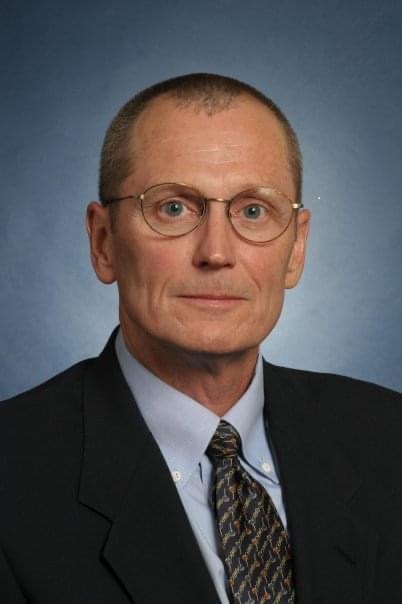 By Don A. Wright
By Don A. Wright
Fortunes are made and lost on the weather. In 1588 Spain went to attack England and a storm wiped out its armada. The loss was so devastating even with its New World holdings Spain never again arose to its former place of prominence as the greatest European power. From 1930 to 1936 a drought centered in the Texas and Oklahoma panhandles caused 2.5 million people to leave the center of the country for other parts.
And while bad weather can lead to major problems, what about the good weather? California is blessed with a Mediterranean climate. Hot summers, cool but not frozen winters, plenty of sunshine and good soil. And due to the foresight of others since gone, California’s fickle water supply has been harnessed for the beneficial use of us all. Part of the infrastructure created to manage this resource are the water and irrigation districts. Both are considered special districts and subparts of the state government. The directors elected take the same oath as the President of the United States. The difference between the two types of districts is a matter of governance. In general, irrigation districts require residency to vote and hold a seat on their boards. Water districts require landownership to vote and hold a seat on their boards. However, the votes are weighted by amount of acreage owned and a director can serve as a proxy for an entity, whether privately held or a corporation.
Westlands and Birmingham
Formed in 1952 the largest water district in the nation is more than 600,000 acre Westlands Water District on the westside of the San Joaquin Valley. The longest serving General Manager at WWD has been Tom Birmingham, who is retiring at the end of December after 22-years in that position. I had the opportunity to sit and have an online talk with Birmingham on a recent, dark Friday afternoon as the rain began to fall.
What struck me most was how relaxed Birmingham was away from the often high pressured public view of a public agency trying to supply water to its constituents. The interview was supposed to be for a half hour but went on for an hour and a half. It’s often observed those who depend on irrigation love the rain as much as ducks, so the rain brought about an improved mood for all of us. I asked him part way through our talk about his schedule being so open. He told me he wasn’t at the Association of California Water Agencies conference then going on, so he had a relatively rare, flexible afternoon.
It is no secret Birmingham’s retirement coincides with four new board members taking office. These new directors have expressed their desire for a change in management. As mentioned at the beginning of this report – weather plays a massive role in events from a global to a personal scale. Had nature provided rain and the man made regulations allowed it to be used for the past three or four years, who knows if Birmingham would be leaving Westlands at the end of the year?
Birmingham and Westlands itself can be a lightening rod in California’s contentious water world. Love him or hate him, you can’t make the label of coward stick to Birmingham. He didn’t shy away from addressing the timing of his retirement. “I want to reduce conflict,” he said. “I remember Mike Stearns [President Firebaugh Canal Water District] observing at a meeting of westside water agencies that agricultural irrigators in the Valley need to stop fighting amongst themselves and work together on common objectives. That resonated with me. I’m leaving now because if I were to remain at Westlands it would create conflict on the board, which is never a good thing. And it would distract from pursuing solutions to the problems water users face.” Fair enough.
He feels he still has a few good, productive years left and shared he’s received two job offers. Several law firms, agencies and consultant firms have told him they’d like to have a talk before he carves anything in stone. He said he has been gratified by the outreach and amount of well wishes he’s received. He said he won’t be entertaining any offers until after his retirement is official and hopes to take a little time off. However, he keeps talking himself into shortening that time frame. “Maybe I’ll write a book,” he said.
It will be a transition requiring abrupt change. “I haven’t taken off work for more than three consecutive days since 1983,” said Birmingham. He jokes he works half time, only 12-hours per day. I asked him what that entailed and he said in addition to meeting primarily on water policy he usually spends four to five hours per day reading reports and such, mostly in the evening.
It’s been said more than once Birmingham’s leaving Westlands will generate a significant gap in institutional knowledge. He’s well versed in far more than just Westlands. You can include the Bay Delta Accord, the Voluntary Agreements and developments on the Colorado River as areas he holds expertise in. Having situational awareness is a must have in California water. For instance, if Southern California loses supplies from the Colorado River that could trigger increased competition for North of Delta supplies, the same source as Westlands.
Starting Out
Birmingham was born and grew up in Yreka, Siskiyou County California. His mother was extremely influential in his career choices.
“She was a child of the depression and didn’t have many opportunities for higher education,” Birmingham recalled. “Her grandfather was a judge in Michigan and she wanted one of her children to be a lawyer. There was only one judge in Yreka. From about the third grade on, if there was a particularly interesting trial being conducted my mother would take me out of school and we’d go watch the trial.”
By the time he graduated from Yreka High School he felt he had developed some analytical skills and chose UCLA because its political science department was ranked second only to Harvard. It was a common belief poli sci was a good course of study in preparation for law school. He didn’t realize all the accolades for this program were based on UCLA’s graduate program. However he did well and after graduating with a four year degree he moved to Sacramento. When asked why he said, “Usual reason. There was a girl involved.”
After working a couple of years he enrolled at McGeorge Law School and earned his law degree. He found a job with the firm of Kronick, Moskovitz, Tiedemann & Girard in Sacramento and in a relatively short time made partner.
The firm was an ideal landing place for Birmingham. Stanley Kronick and Adolph Moskovitz first met in 1950 while working as staff attorneys for the US Bureau of Reclamation. In 1959 they founded the eponymous firm. They took on the complexity of law involving water and government issues including public agency law.
Moskovitz took an interest in Birmingham, “The highest compliment I’ve ever received came from Adolph. He had very high standards and as he was winding down his practice he had enough confidence in my legal ability to make me responsible for his major clients, including Westlands.”
Birmingham started working with Westlands in 1986 as outside counsel. By 1995 he became the general counsel for Westlands. In 2000 the former General Manager Dave Orth resigned and Birmingham was offered the position.
General Manager
One of the questions I asked Birmingham was – what advice do you have for whoever follows you? He said it wouldn’t be appropriate to give managerial advice to whomever takes his place. But he did offer some personal advice, “Don’t let the job consume you,” said Birmingham. “Keep an appropriate balance in your personal and professional life.”
He told me when he first became GM he would work at least two-days a week in the Fresno office and have monthly staff meetings. He quickly discovered something about Westlands organizational set up. At the end of the meetings he would give his direction and staff would often turn to then Assistant GM Dave Ciapponi and ask is that alright. Birmingham laughed saying to Ciapponi’s credit, “Dave was always astute and too gracious to contradict me in front of everyone.”
But the experience soon taught him to delegate responsibility as the staff was extremely capable and talented. He believes the current staff carries out that tradition naming a few of the many people he works with and gives credit to: Jose Gutierrez, Russ Freeman, Bobbie Ormonde, Kiti Campbell and Jon Rubin and the list goes on.
Birmingham also realized his role was to engage in policy and leave the day to day management to the district’s professional managers. He also learned a lesson from Orth who had a young family while working as Westlands’ GM. Birmingham recalled Orth lived in the Fresno Area and made it a priority to be home. He said Orth about wore himself out traveling back and forth from Sacramento. Birmingham located his family in Sacramento and saved himself the stress of attempting omnipresence. “The job of Westlands General Manager is a lot more political than day to day hands on management,” Birmingham observed.
observed.
Controversy
The Edleman Trust Barometer declared 2021 the year of media trust bankruptcy with fewer than half of all Americans trusting the mainstream media sources. Westlands has long been a target for local, state and national news organizational bias.
One particularly egregious example that comes to mind is a 2019 piece by the San Jose Mercury News editorial board calling on readers to submit negative comments about Westlands’ contract conversion for its Central Valley Project agreements. Amongst other things the Water Infrastructure Improvement for the Nation Act (WIIN Act) allowed CVP water contractors to convert their contracts to a new agreement allowing a quicker payoff for money owed the government. That’s right, the farmers have been and continue to pay for irrigation infrastructure projects like Shasta and Folsom Dams, the Delta Mendota Canal, the San Luis Reservoir and the Jones Pumping Plant near Tracy. Despite reports to the contrary irrigation infrastructure isn’t just on the backs of the taxpayers.
The ability to convert contracts approved by Congress to accelerate repaying capital cost, a bookkeeping act that had nothing to do with water delivery. But the Mercury News and other large daily papers actually predicted dire results for endangered species. What was even more telling was at the same time the Santa Clara Valley Water District, the district that supplies San Jose and Silicon Valley with water, was applying for the same contract conversion offered in the WIIN Act – which by the way was signed into law by President Barack Obama in 2016, another fact not mentioned in the Mercury News’ editorial.
I was curious as to Birmingham’s take on Westlands’ treatment in the press. He said whenever the press writes something negative about Westlands the district is bombarded with Public Record requests which keeps the district on its toes when it comes to following law and procedure.
Birmingham said he’s never understood the basis of Westlands reputation other than its size. He also believes if more people knew the history of Westlands and where it is today, they’d realize just how progressive the district is. At one time most the land in current day Westlands was owned by four companies: Standard Oil, Southern Pacific Railroad, Anderson Clayton Cotton and JG Boswell Farms.
Originally growers were limited to 160 acres of land which created a problem for economy of scale and profitability. In 1982 Congressman George Miller authored federal legislation to increase the limit to 960 acres. Today the district has thousands of landowners and more than 650 farming operations growing than $2 billion worth of crops annually and support 35,000 jobs in the area.
One of the biggest problems Westlands has had to deal with is the infamous Kesterson Wildlife Refuge. The San Luis Unit of the CVP infrastructure was supposed to include the San Luis Drain, a way to move excess water and salts out of the area to the Delta and eventually to the sea. Construction on the drain began in the south and headed north. Like California’s High Speed Rail it followed the path of least resistance and the US Bureau of Reclamation halted construction east of Gustine in Merced County creating a wetlands that was never intended to be. Selenium is a trace element that occurs naturally in the soils on the eastern slope of the Diablo Range that defines the San Joaquin Valley’s western edge. Storm and irrigation drain water containing selenium would enter the San Luis Drain and end up concentrating at Kesterson. In proper amounts selenium is vital to our health. The National Institute of Health states selenium is an antioxidant and helps prevent cancer and heart disease. Selenium is added to salt blocks used in animal nutrition on the Valley’s eastside. But in concentrated amounts selenium can cause deformities in waterfowl such as those nesting at Kesterson.
end up concentrating at Kesterson. In proper amounts selenium is vital to our health. The National Institute of Health states selenium is an antioxidant and helps prevent cancer and heart disease. Selenium is added to salt blocks used in animal nutrition on the Valley’s eastside. But in concentrated amounts selenium can cause deformities in waterfowl such as those nesting at Kesterson.
Lawsuits about San Luis Unit drainage have been ongoing since 1963 and the drainage to Kesterson was closed in 1986. Farming did not create selenium – it’s not a byproduct of cotton. Westlands didn’t create and then stop short of completing the San Luis Drain, but the district has been blamed for and associated with the federally created problem. This bias hits a nerve with Birmingham.
“Westlands is one of the most progressive districts in the country,” said Birmingham. “From the beginning Westlands has understood the importance of water conservation. Since 1965 our distribution is through pressurized pipe and that’s been copied around the world.”
Birmingham said to his knowledge Westlands is the only irrigation district distributing water exclusively through a closed, underground system. It’s also the only district retiring land at its own expense to save water and create renewable solar energy. He is also proud of the district’s tidal marsh habitat restoration taking place in the Delta.
He pointed to Woolf Farm as an example of a family business, “They have thousands of acres on the westside but that family is out there working the land everyday. And Westlands farmers are one of the most philanthropic groups you’ll find.”
Birmingham said other government agencies always ask him why Westlands gets such a bad rap after they find it is in fact a competent and easy to work with organization. He’s proud of what the district’s farmers can do.
“Westlands is the most productive farming region in the State. Soil conditions and the climate are ideal. In California the average almond crop yield is what 2,400 to 2,500 pounds per acre? In Westlands if a farmer gets sufficient water it’s not unusual for them to produce 4,000 pounds per acre. There is not a finer group of people than Westlands farmers,” said Birmingham.
Accomplishments & Regrets?
Of course I had to ask Birmingham about his highlights and if he had any regrets. He said what stands out most to him was when he had a conversation with the President of the United States. There was a meeting held in Fresno when Obama and Secretary of Agriculture Tom Vilsack were passing through. One representative each from an environmentalist organization, the United Farm Workers and Birmingham were invited to share comments with the President.
“After that meeting I was accused by some of having a man-crush on President Obama,” said Birmingham. He explained, “At the beginning of the meeting the President made some comments to the press. After the press left an attorney from an environmental group, a member of the United Farm Workers and I each shared our perspectives with the President. At the end of these comments the President turned to me and we had a 20-minute dialog about water supply issues. President Obama was among the most intelligent people I’ve ever met. And he was certainly the most charismatic. I could never had imagined as part of my job I would have the opportunity to have a substantive discussion with the President of the United States. That meeting was the highlight of my career.”
Birmingham added, “I don’t know if it was in any way connected to that meeting, but after the meeting, presidential appointees in the Department of the Interior began having detailed discussions with a bi-partisan groups of Senators and Representatives about more effective, efficient ways of protecting fish and delivering water. Many of the actions that were the subject of those discussions ultimately made their way into the WIIN Act.”
In fact passage of the WIIN Act was another high point for Birmingham. He said he Westlands staff worked relentlessly with representatives from both sides of the aisle in the House, the Senate and other public water agencies to get that legislation passed. He also points to the Voluntary Agreements as a significant development. He said he would have liked to stay around until that is completed.
I asked him what he saw in the Voluntary Agreements and he said there are components that work for the people, the environment and agriculture. He said the VAs will protect operational flexibility for the projects, enhance the ecosystem with functional flows, and “. . . employ a robust adaptive management program, and provide regulatory certainty for at least eight years, and hopefully beyond.”
I asked him, “Really? Haven’t we heard that before?” He said yes, the Bay Delta Accords promised some good things too, but then Secretary of the Interior Bruce Babbit pulled the rug out from everyone. Birmingham is taking a fool me once shame on you, fool me twice shame on me, attitude towards the VAs. He said the attorneys working on the documents to memorialize the VAs can draft adequately protective language and the state is more motivated to make the VAs.
I asked him if he had a magic wand what would he change and he said, “I would want a comprehensive program that would addresses all the factors affecting the abundance of species in impacting the Delta that achieves a reasonable balance among competing uses of water. As species abundance has continued to decline, the practice has been to further constrain operations of the projects, but the projects are only one of numerous factors that limit species abundance.
“If we are serious about protecting the viability of native fish species, we have to begin to address all of the factors that limit their abundance. In addition, I would want all uses of water, including environmental uses, held to the same standards of reasonableness and beneficial use. If water dedicated to the environment is not achieving the desired result, modify that use of that water. They keep placing restriction after restriction on operations of the projects, and it hasn’t fixed anything. We should not believe that maintaining that course will result in a different outcome.”
At the end Birmingham said he believes Westlands has some strong assets to bear on the next part of its journey. “I’ve told you about how great the district’s growers are. I’m also incredibly proud of the employees and management team now in place. They’re the most capable, professional staff in the business.”
I asked Birmingham if he had any regrets. He paused a moment then said, “I sometimes wish I’d prepared differently. I wonder if I would have been better served by studying of civil engineering, rather than political science, as an undergraduate. But then I might have ended up an engineer somewhere, doing something else. I wouldn’t want that. Looking back, I would not have wanted any other job, any other career than the one I’ve had at Westlands.”
DISCLAIMER OF RESPONSIBILITY; Waterwrights.net strives to provide its clients with the most complete, up-to-date, and accurate information available. Nevertheless, Waterwrights.net does not serve as a guarantor of the accuracy or completeness of the information provided, and specifically disclaims any and all responsibility for information that is not accurate, up-to-date, or complete. Waterwrights.net’s clients therefore rely on the accuracy, completeness and timeliness of information from Waterwrights.net entirely at their own risk. The opinions expressed in this report are those of the author and do not represent any advertisers or third parties.
ALL RIGHTS RESERVED. Copyright 2022 by www.WaterWrights.net/DAW






























